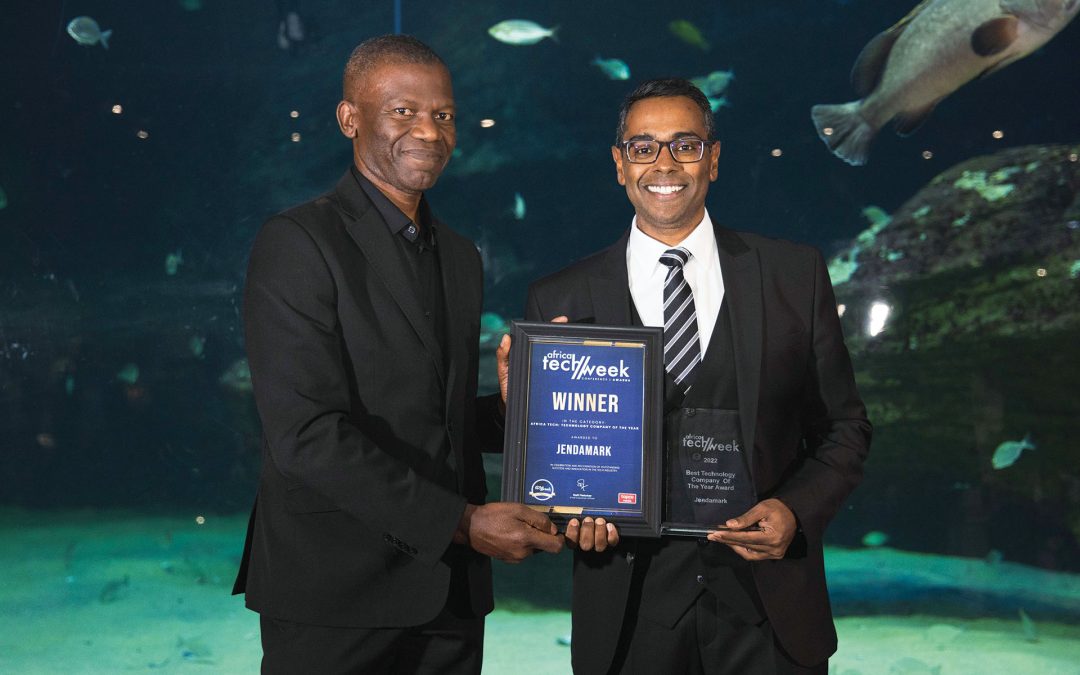
by NewsAdmin | Apr 4, 2023 | Jendamark News
Jendamark Automation is proud to have been named Technology Company of the Year at the Africa Tech Week awards in Cape Town in September.
The company was recognised for its technological achievements in developing digitally enhanced component assembly systems for the global automotive sector, which contributed to its commercial success, while showcasing opportunities for economic transformation in Africa.
Founder and managing director Quinton Uren says he is delighted that Jendamark’s digital transformation journey has been recognised and rewarded.
“I am incredibly proud of our young and dynamic team who have led the way. Over the past few years, Jendamark has shifted rapidly from a historically automation-focused company in the manufacturing space into a diversified global tech leader.
“What remains unchanged, however, is our focus on understanding and meeting our customers’ needs.”
Digital ubuntu
Jendamark’s innovations director, Yanesh Naidoo, says the company’s digital manufacturing technologies deliver an African-born, human-centric response to the demands of Industry 4.0.
Unlike more developed economies, where a shrinking workforce necessitates automation, the future of developing economies lies in unlocking their human capital, explains Naidoo.
“Instead of automating processes that take people off production lines, we are developing tech to unleash human potential. We call it ‘digital ubuntu’, and believe it is the only way to bring more people into the economy and empower them to contribute to society,” he says.
“Jendamark’s manufacturing presence in South Africa and India allows us to understand the challenges that many developing economies around the world are facing, and we must change the paradigm on how we use technology to solve these challenges.”
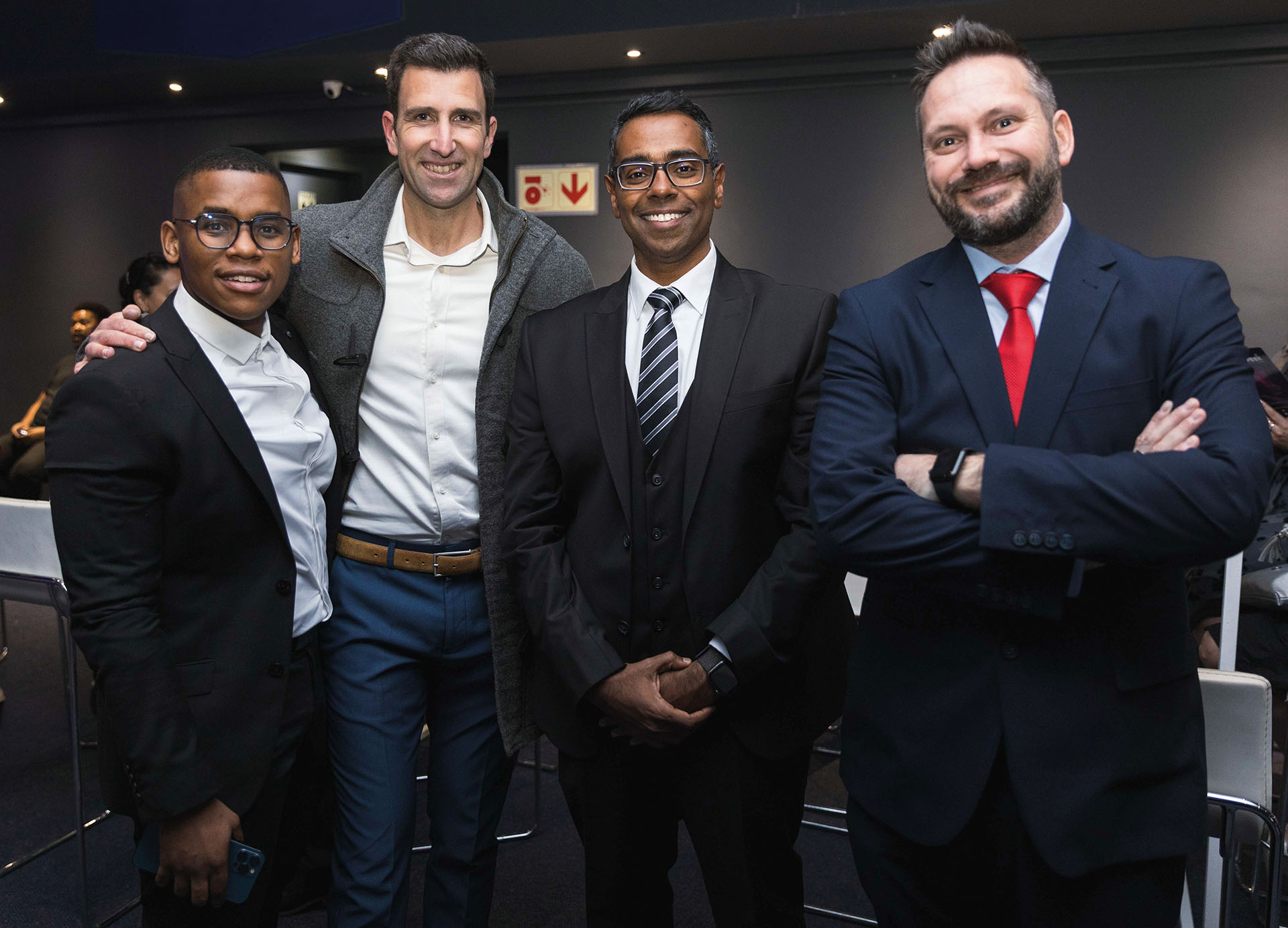
Accelerating digitalisation
Jendamark’s ecosystem of digital productivity and efficiency solutions are marketed under the Odin Manufacturing brand and encompass a range of factory functions from maintenance to quality assurance and real-time reporting on production data.
“We are all incredibly proud of our Odin Manufacturing technologies, but this award is not just for our Odin team,” emphasises Naidoo. “It is for every member of the Jendamark family who works hard to ensure that the facilities we build are world class and ready for the digital revolution.”
Head of Odin Manufacturing Juane Schutte says the win is further validation that Jendamark is solving the right problems.
“We are on a mission to accelerate digitalisation in small and medium factories in Africa at a low cost, allowing semi-skilled shop floor personnel to do much more advanced work. We see human-centric factories as massive opportunities in accelerating skills development and enhancing the economic impact in Africa.”
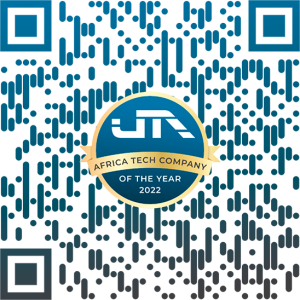 Scan this QR code to watch the competition entry video showcasing Jendamark’s journey.
Scan this QR code to watch the competition entry video showcasing Jendamark’s journey.

by NewsAdmin | Mar 21, 2023 | Jendamark News
While Jendamark applies ecosystem thinking to the development of all our manufacturing technologies, we recently invested in an ecosystem of a different sort in our quest to be the employer of choice.
In October, Jendamark Automation announced an investment in conservation which will transform one of Nelson Mandela Bay’s most controversial game parks into a private sanctuary that aims to restore biodiversity and promote wildlife education.
The company purchased the 120-hectare Seaview Predator Park with the intention to develop it into a conservation and rehabilitation centre that will create jobs and act as an outdoor retreat for Jendamark employees, customers, and community groups.
Wildlife sanctuary
According to operations director Siegfried Lokotsch, Seaview Private Sanctuary, as it is now known, is not a commercial tourism venture and will not be open to the general public.
“However, once we are up and running, any educational or community upliftment programme will be welcome to apply to visit our facility free of charge. We want to give back to our community and educate people about the importance of protecting our wildlife.”
Lokotsch says the company is in the process of developing a long-term veld and game management plan in consultation with a wildlife veterinarian and environmental specialist.
“We want to understand the biodiversity and do the right thing ecologically in terms of the species that we introduce, the indigenous vegetation and the carrying capacity of the land.
“Currently, we have several free-ranging species such as various buck, giraffe, and zebra. There are no animals in cages and no dangerous game. All the big cats for which the park was previously known have been rehomed by the former owners.”
Development plans
With water for the animals being scarce, rainwater tanks have been installed and a borehole will be sunk to access a steady groundwater supply.
Lokotsch says the first phase of redevelopment will be completed within the next six to 12 months, beginning with high-security electrified fencing to keep out poachers, and keep animals and visitors safe.
The existing facilities, including the restaurant, log cabins, camp sites, ablution blocks and braai areas, will also be upgraded.
“Our vision is to have mountain biking and walking trails criss-crossing the property, so that it becomes a very special outdoor recreational centre that allows people to have close encounters with our incredible wildlife,” says Lokotsch.
“In the next two years, we aim to create 30 to 50 jobs in the local community, assisting with trail building and the removal of alien invasive species such as black wattle, which we will help them bag and sell as braai wood for additional income.”
Sustainable growth
He says the new investment aligns with the company’s existing sustainability efforts, such as the rooftop solar energy plant powering Jendamark’s Gqeberha manufacturing facility. In addition, aspects of Jendamark’s core business are having a positive environmental impact, such as the development of assembly solutions for electric vehicle power packs, as well as catalytic converters, which reduce harmful exhaust emissions.
“What we’ve realised as a tech business is that attracting and retaining specialised skills involves more than money,” adds Lokotsch.
“For the new generation of tech talent, shared values and wellness incentives are just as important as above-market salaries. So, we are constantly thinking of new and authentic ways to be a good corporate citizen and the employer of choice.”
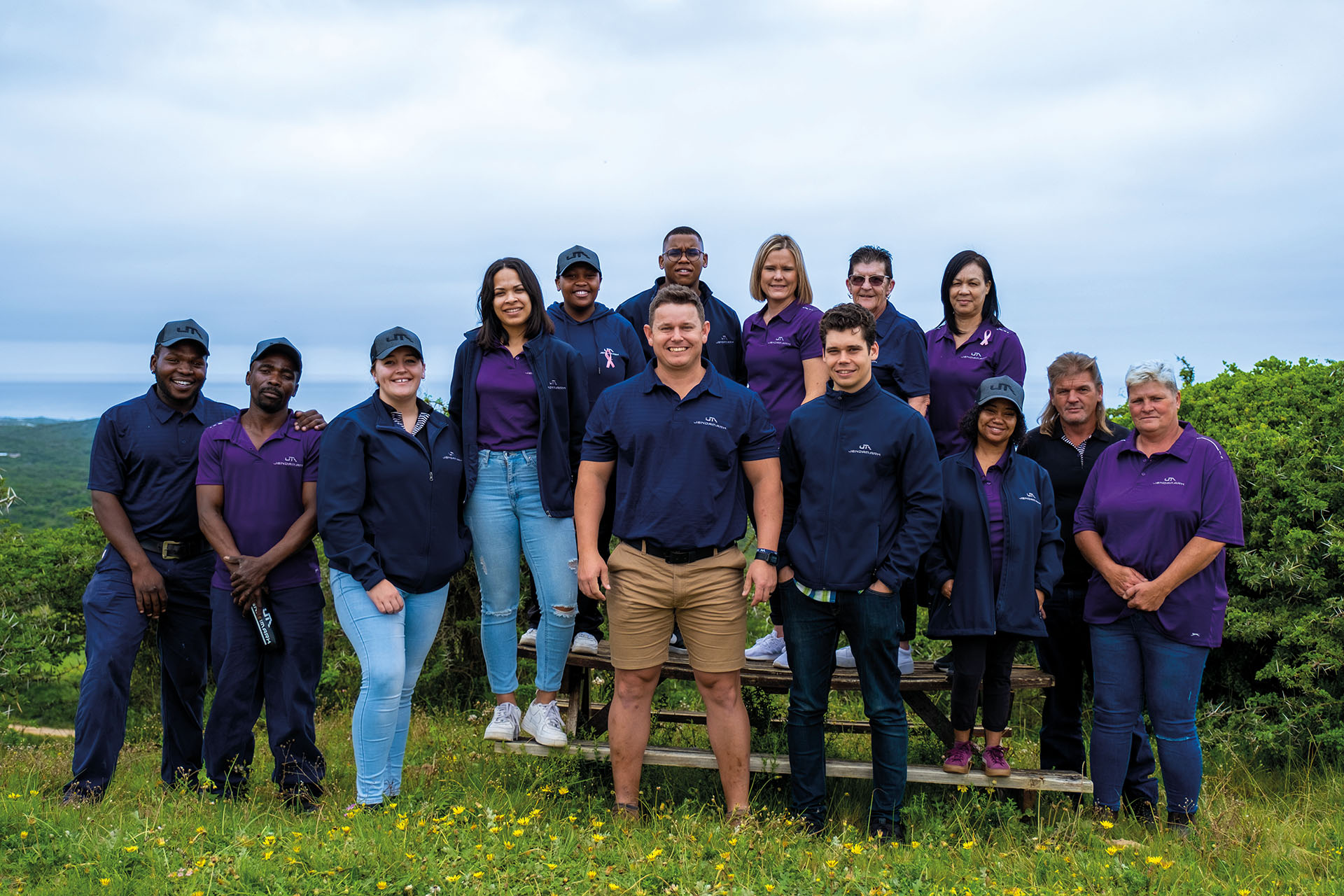
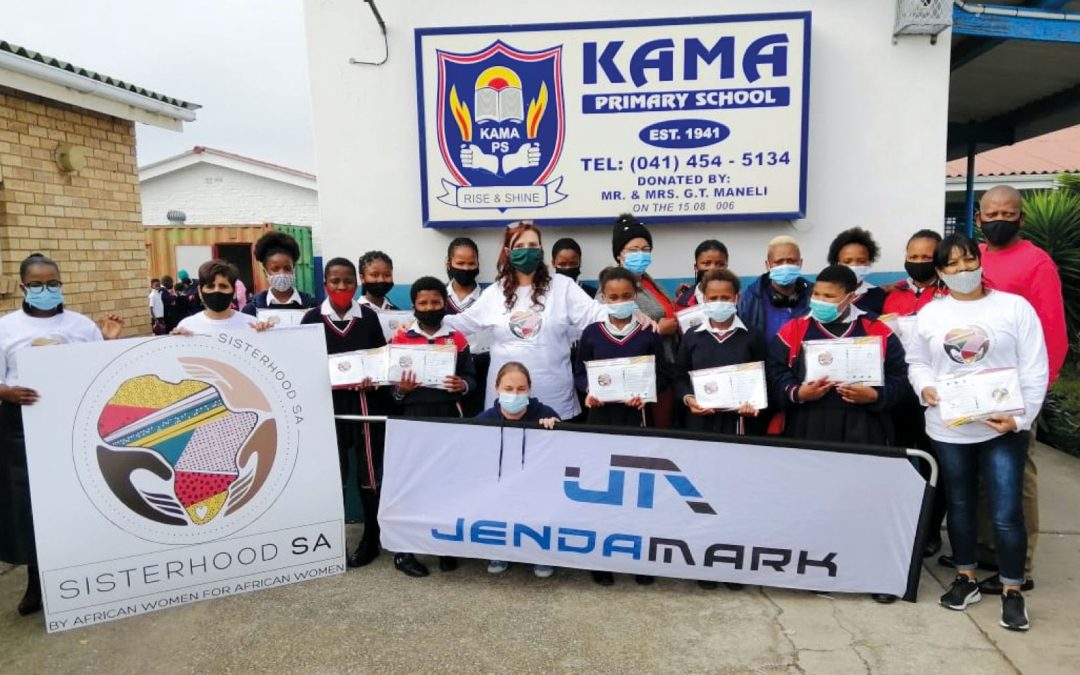
by NewsAdmin | Mar 7, 2023 | Jendamark News
Period poverty is the second biggest issue in Africa preventing educational equality for girls. Jendamark Automation has supported the start-up of Sisterhood SA Pty, a visionary health programme that is changing lives with a simple, sustainable sanitary kit.
While menstruation is a taboo topic in many communities, it has a very real impact on the lives of young women, who miss between 75 and 100 days of school every year because they either cannot afford or do not have access to sanitary products.
Enter Sisterhood SA Pty, which has designed a cost-effective sanitary kit that aims to educate and empower girls and keep them in school. The kit includes a washable, reusable sanitary pad and panties, available in pre-teen to adult sizes, plus low-cost cleaning products and educational brochures on reproductive health.
From start-up to success
The Gqeberha-based, women-owned company first engaged with Jendamark during the Covid-19 pandemic when likeminded local businesses started working together to set up supply chains and funding for struggling hospitals.
Seeing the opportunity to make a difference in a different direction, operations director Siegfried Lokotsch made start-up funding available, which allowed Sisterhood SA to develop test kits for a trial run at three schools in Gqeberha.
“The funding gave us the chance to complete our first manufacturing run with leading ISO9000 companies, following written approval from the South African Bureau of Standards to start production on the product and packaging.
“We were able to secure our patent and have a finished product to present to the international market,” says Sisterhood SA Pty director and founder Shaan Keegan.
“We are now in the process of finalising full production and, given the interest from the retail sector and corporate social investment programmes, especially in the USA, we will be starting in 2023 with 3000 units per day.
Partnering for growth
“We have established partnerships with our CSI partner New Africa Education Foundation, which can issue Section 18A tax certificates for corporate donors, and with Novartis Pharmaceuticals, which has a footprint into 47 countries in Africa. We are also endorsed by the United Nations Women’s Forum and Social Justice for Women in SA.”
Keegan says the product will first be distributed in South Africa, followed by Kenya and the USA, and then the rest of Africa, once cluster patents have been secured and they have entered into policing of patent agreements with these countries. She says recent discussions have taken place with leading international organisations such as the East African Health Platform, SOS Children’s Villages, and the Red Cross, as well as a chain of hospitals in India.
“Sisterhood SA Pty would not exist if it was not for Jendamark, so their constant support and contribution meant the world to us. The kit concept and the education programme have never been done before. We are now gaining global attention and, as per the latest interview at the Global Changemakers forum in the USA, we are being well received by Africa and the West.”
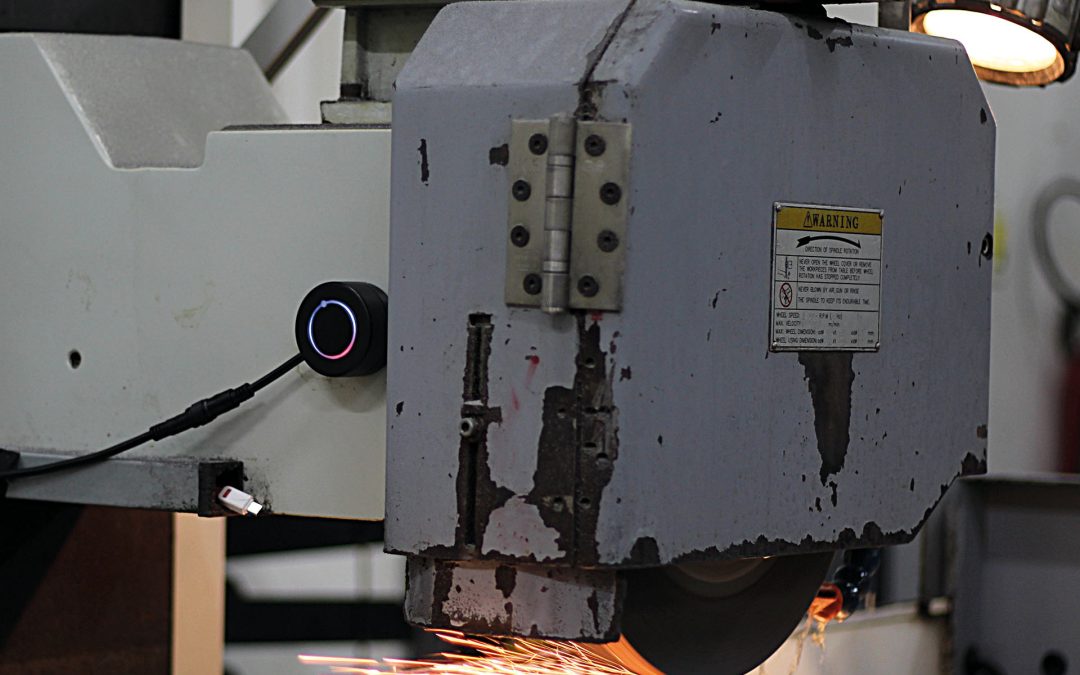
by NewsAdmin | Feb 21, 2023 | Jendamark News
Going to market in 2023 is the ODIN IOT platform, which gathers real-time performance data straight from customers’ machines to predict and avoid downtime. The technical product manager, Christine Chetty, explains what it’s all about.
Essentially, ODIN IOT is about unlocking everyday value from machine vibration data, says Chetty.
“Do you really know when and how all your critical assets are being utilised, or when the right time is to perform asset maintenance? ODIN IOT is designed to be a reliable source of asset utilisation data to help you make the right decisions whenever you need it.”
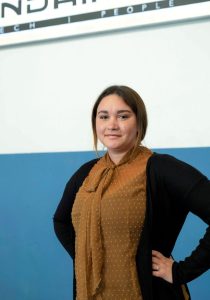 Chetty says the vibration data produces actionable insights in near real-time, so there is no need to pay an expensive specialist to come in at regular intervals and carry out an in-depth vibration analysis to extract meaningful information and predict problems.
Chetty says the vibration data produces actionable insights in near real-time, so there is no need to pay an expensive specialist to come in at regular intervals and carry out an in-depth vibration analysis to extract meaningful information and predict problems.
“The subscription-based service gives you access to data that you wouldn’t normally have or possibly even understand. It makes it useful on a daily basis.”
For instance, she says, it enables the scheduling of just-in-time preventative maintenance, based on actual productivity, which reduces downtime and unnecessary spare part consumption. By predicting harmful trends in asset vibration, it can help customers uncover faults and use the ‘raise alert’ function to trigger action before any damage is done.
The IOT platform pairs with the on-device Raven sensor, which, Chetty explains, also allows customers to gain new insights into older machines.
“Mechanical machines can connect to the cloud without the infrastructure setup and expertise costs associated with most IOT system implementations.
“At Jendamark, we validate the insights produced on the grinder in our own machine shop. We can see that it’s consuming energy, even when it is idle or not producing parts. So then we have the data to show that it should be turned off to reduce non-productive expenditure.”
A new feature, which is a useful value-add, is that mobile app users can now input their own production data on the shop floor.
While this is not strictly an IoT core value, it is in line with ODIN Manufacturing’s vision to connect people, machines, and products, says Chetty.
“We are helping customers to digitise their processes. We’re talking about the kind of thing that would be noted manually on a whiteboard or a clipboard form daily. For example, if you scribble up your production targets on a whiteboard, you can now see the history of those targets over time.”
This, she explains, is ideal for small businesses that do not have a manufacturing execution system (MES) like ODIN Workstation collecting their production data.
“We are constantly trying to refine our understanding of our customers’ problems, and make a real, practical difference in their operations, which is what led us to completely re-architect our offering in 2021,” says Chetty.
“Often production problems aren’t complex. But why are there no existing digital solutions to these problems?”
This is what Chetty and the ODIN Manufacturing development team are working to answer.
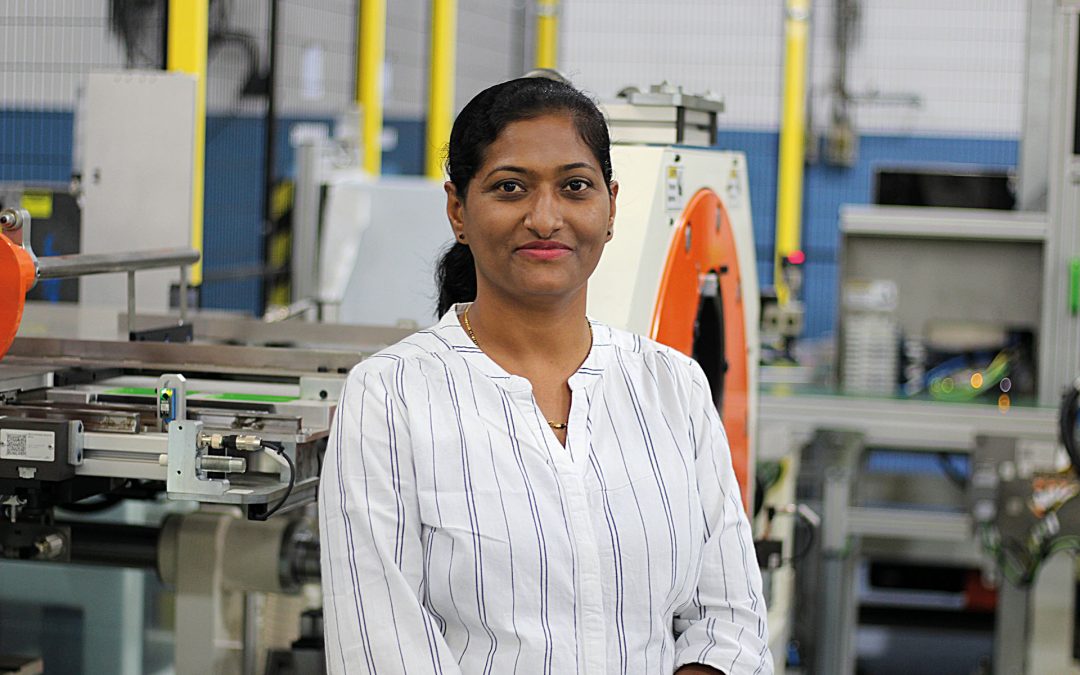
by NewsAdmin | Feb 7, 2023 | Jendamark News
Senior design engineer Reshma Jadhav recently travelled to South Africa where she spent two weeks learning the complexities of catalytic converters before taking up her new role as technical lead for Jendamark India’s canning division.
It has been a rapid rise for Jadhav, who joined Jendamark India just one year ago, after seven years with another automation company.
“At that company, the most complex project that I worked on was a cylinder head cam cover assembly line for a facility in China, which presented a number of challenges, including the cycle times on the line,” says Jadhav.
“Before I joined Jendamark India, I was never exposed to canning projects. So, my initial goal with this intensive training experience in South Africa was to learn all there is to know about the basics, including all tooling and facilities, so that I can impart this knowledge to my team in India.”
Jendamark’s South African team has been developing catalytic converter assembly facilities for almost three decades.
“When I started my training, I was given an induction by Alwyn Smit, who explained the entire design process flow, ensuring that I had a clear foundation. Then each member of the tooling team shared their personal process flow that they follow to ensure that a successful design is released every time,” explains Jadhav.
“I gained exposure to all the various checks that need to be done, the customer data that must be assessed, the tooling calculations that need to be done as well as the lessons learned from these calculations.
“I also learned about parametric modelling when designing multi-body assemblies, which is an incredibly helpful tool that can be used for designing canning tooling.”
Jadhav is excited to share all this newfound knowledge with her team, and see where improvements and increased efficiencies are possible.
She also takes back some fantastic travel memories such as taking time out to experience Gqeberha’s beautiful beaches, seaside flea markets, and game reserves with her colleagues.
“This opportunity is really exciting for me, and I accepted it with open arms. This is a fantastic opportunity for growth, and I will be eternally grateful for all the support and guidance. This new role is a way to develop my career in a well-established company and it’s a great position. I am excited to see what the future holds and looking forward to growing my team around me.”
Jadhav says, as a working mother, the flexibility that Jendamark offers with work-from-home initiatives makes it an adaptive environment that fits in with life’s daily challenges that can arise.
“The fact that Jendamark’s work globally is project-based means that every project we take on is challenging and different. No day is the same and I love coming up with innovative solutions to every one of the various challenges.”
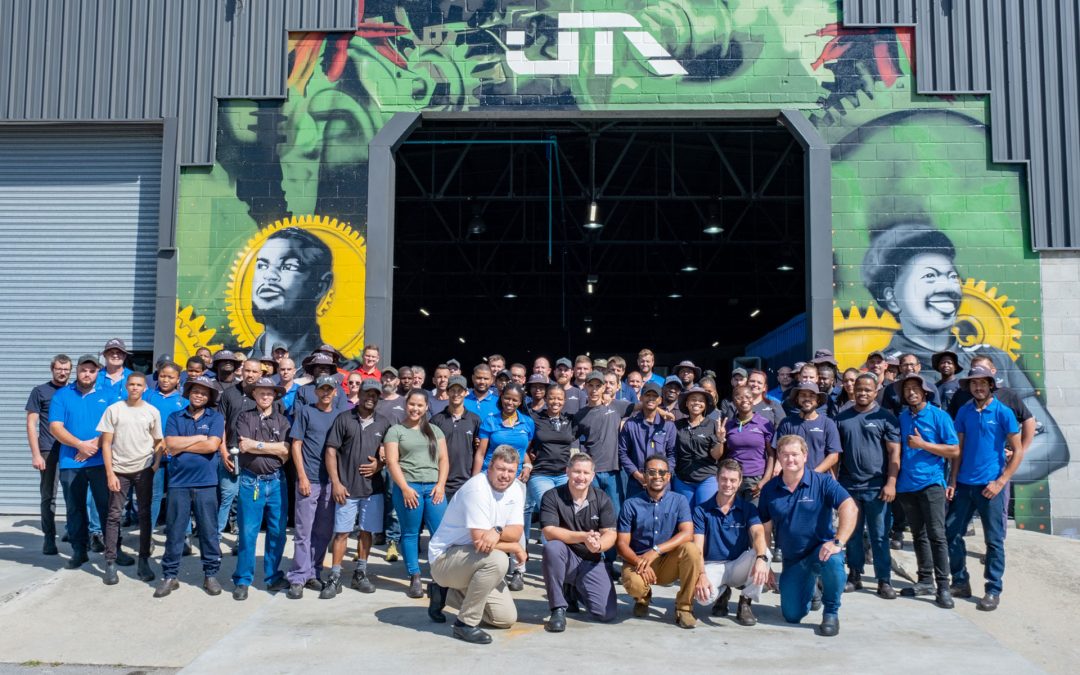
by NewsAdmin | Jan 30, 2023 | Jendamark News
MAD MURAL: Jendamark’s manufacturing, assembly and design department celebrates the unveiling of their new mural, which honours the role of the artisan in industry, at the company headquarters in Gqeberha.
A LEADING South African tech company is spotlighting the country’s critical shortage of qualified artisans, with the hope of encouraging school leavers to pursue the much-needed technical trades.
According to Jendamark Automation, which builds and exports automotive component assembly systems for the global market, artisans are in high demand both locally and abroad, with good career prospects for those who progress successfully through vocational training programmes.
Last November, minister of higher education, science and innovation Blade Nzimande stated that South Africa needed at least 60% of school leavers to pursue artisan type training to meet the country’s demand for scarce skills.
Jendamark manufacturing and assembly manager Marinus van Rooyen said the company had noticed a worrying decline in the number of applications for advertised positions for artisans, especially among toolmakers.
“We are concerned about this trend and have found that this challenge is not unique to Jendamark, as our local and national manufacturing suppliers are experiencing the same frustration,” said Van Rooyen.
He said most matriculants viewed a university degree as the only qualification to aspire to but that many flourished in a more hands-on, practical learning environment.
“South Africa’s manufacturing sector can only grow if we have the talented engineers, artisans and technicians who have the skills to build and fix things,” said Van Rooyen.
Speaking at the official unveiling of a mural by Gqeberha-based artist Buntu Fihla at the company’s manufacturing and assembly hall, Van Rooyen said the aim of the mural was to instil pride among employees and to depict respect for the artisan.
“We want visiting school groups, students and employees to understand the value of having a trade and that it is a career path to be proud of, which offers many opportunities.
“For trade-tested artisans, the world is their oyster. There is a shortage of technical skills globally and we have found that many South Africans are being lured overseas by international recruiters.”
The country’s National Development Plan has a set target of turning out 30,000 artisans per annum by 2030. Current estimates suggest an average closer to 20,000, resulting in a shortage of what are categorised as “priority skills”.
Van Rooyen said Jendamark had been contributing to this skills development drive for the past decade by running its own in-house apprenticeship programme for mechanical fitters, electricians and toolmakers.
The four-year programme, which is overseen by MERSETA and endorsed by the Department of Higher Education and Training, has so far delivered an overall 98% pass rate for apprentices taking their trade test.
Qualified toolmaker and apprentice mentor Funeka Gusha, herself a product of the programme, is responsible for coaching Jendamark’s toolmaker apprentices through the work-based learning process.
“In becoming an artisan, you gain lots of skills and opportunities,” said Gusha.
“You’ll be able to earn an accredited Red Seal certificate, do better paid work, and, like me, may even be called upon to teach others.”
As a woman in a male-dominated industry, she said she was proud to have chosen a challenging career path and was pleased to share her expertise and experience with the young men and women coming through the ranks.
“I’m enjoying being a mentor. It has taught me a lot in terms of personal growth, patience and dealing with the different students. Seeing them working hard with determination inspires me. We’ve got one candidate who is preparing for his trade test right now and the dedication he is showing is amazing.”


 Scan this QR code to watch the competition entry video showcasing Jendamark’s journey.
Scan this QR code to watch the competition entry video showcasing Jendamark’s journey.

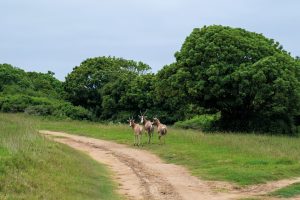




 Chetty says the vibration data produces actionable insights in near real-time, so there is no need to pay an expensive specialist to come in at regular intervals and carry out an in-depth vibration analysis to extract meaningful information and predict problems.
Chetty says the vibration data produces actionable insights in near real-time, so there is no need to pay an expensive specialist to come in at regular intervals and carry out an in-depth vibration analysis to extract meaningful information and predict problems.
